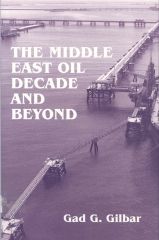This book highlights three fundamental aspects of the oil decade. First is the influence the production, export and revenues of oil had on domestic, regional and international relations, in particular between foreign producer companies and local governments (chapter 1); between producer governments and consumer governments (chapters 2 and 3); and between Arab producer states and Arab non-oil states (chapter 4).
Second is the expansion of higher education, no doubt the most single significant social change the oil decade engendered. Many new universities throughout the Arab world began opening their doors to an ever-increasing number of students, especially in the sciences and civil engineering. Significant was also the proportion of woman students enrolling. The huge investments required for establishing advanced systems of higher learning were of course provided by the financial resources the oil states now had at their disposal, but the impetus came from the realization that only through successfully developing their human resources could they hope to transform their economic structure.
The third aspect is the way economic relations developed between the Arab states and Israel. As of the early 1970s the official Arab boycott on goods manufactured in Israel was increasingly being circumvented and a wide range of agricultural and industrial products were beginning to find their way to customers in Arab states. This was to prove of much significant when, following the first Oslo agreement of 1993, trade relations became overt.












